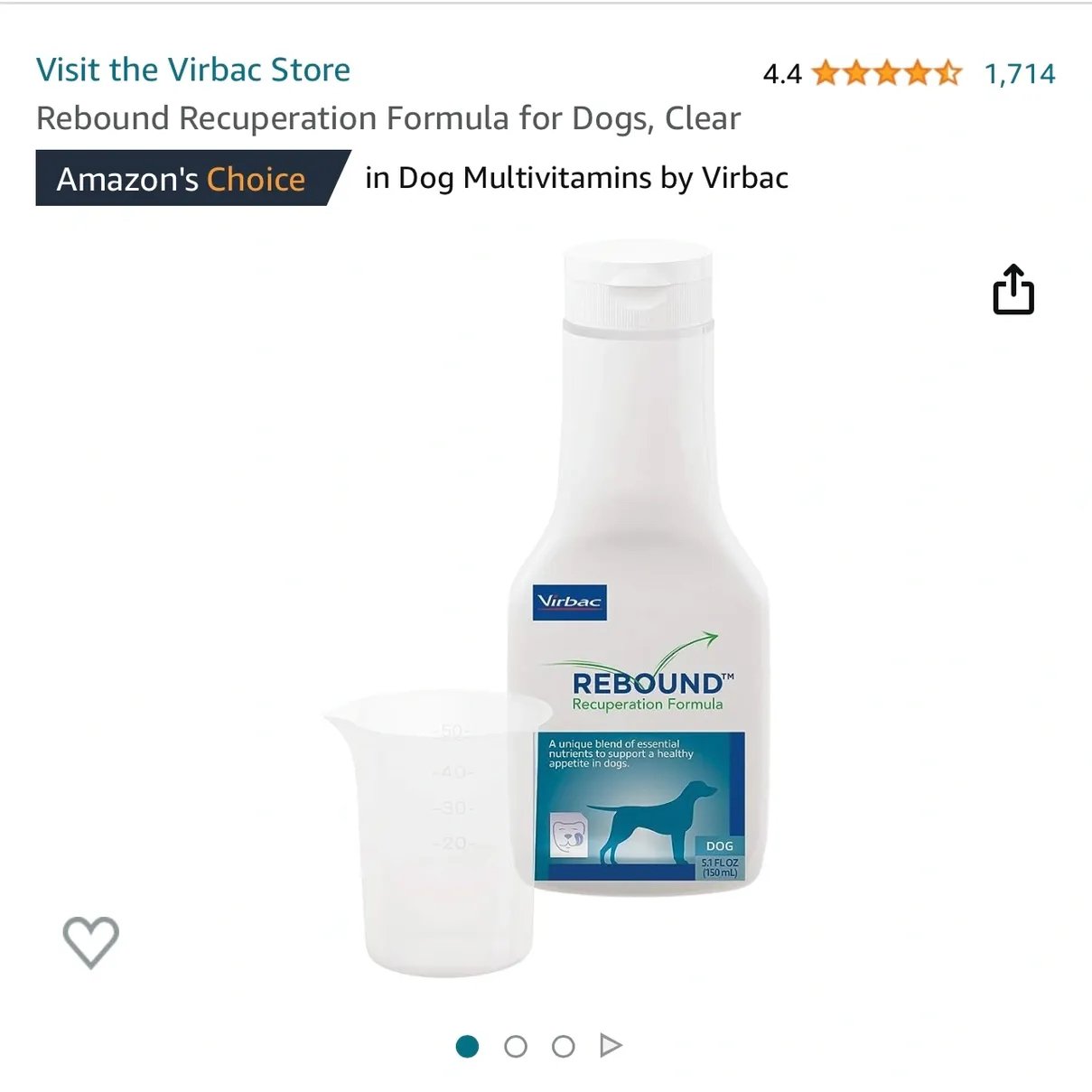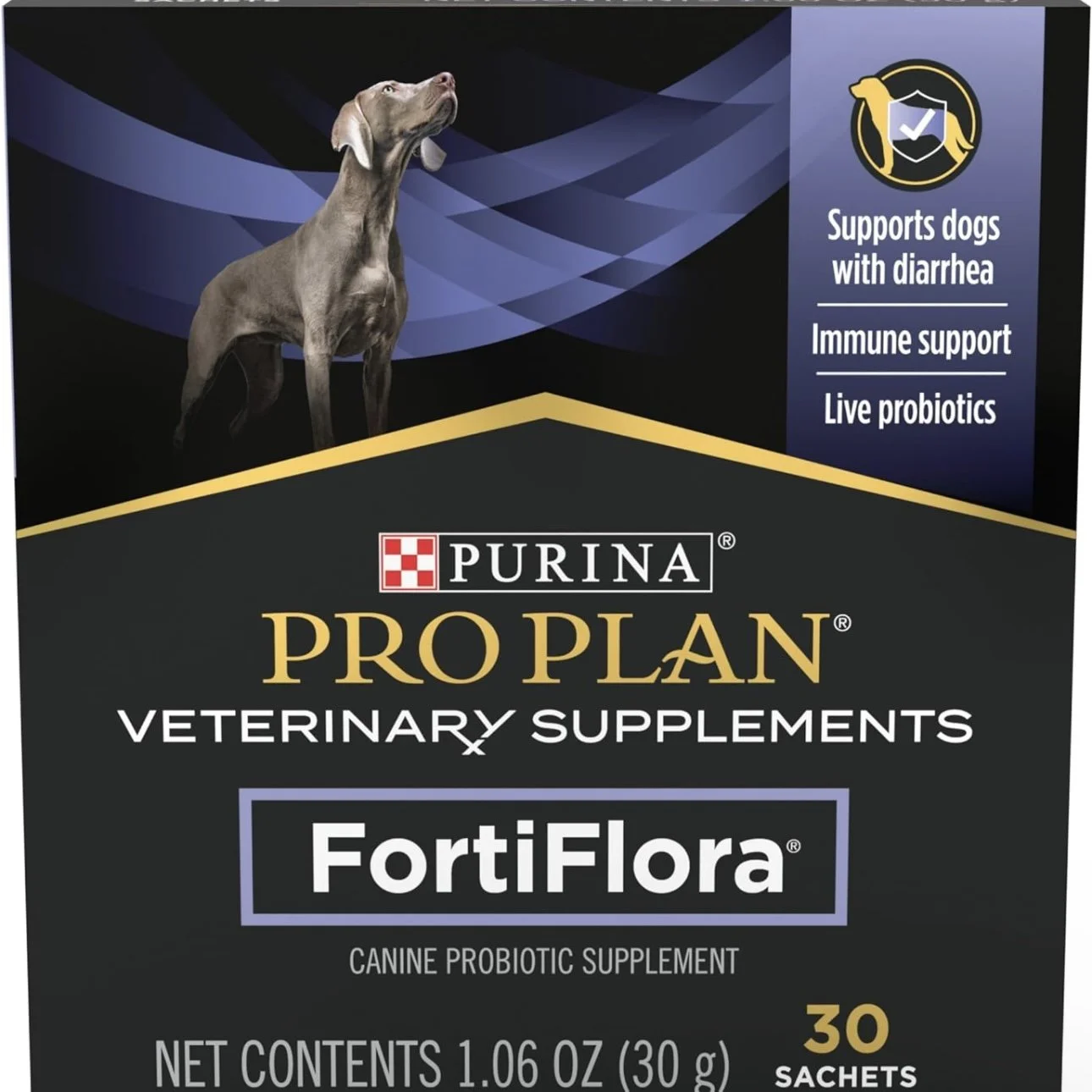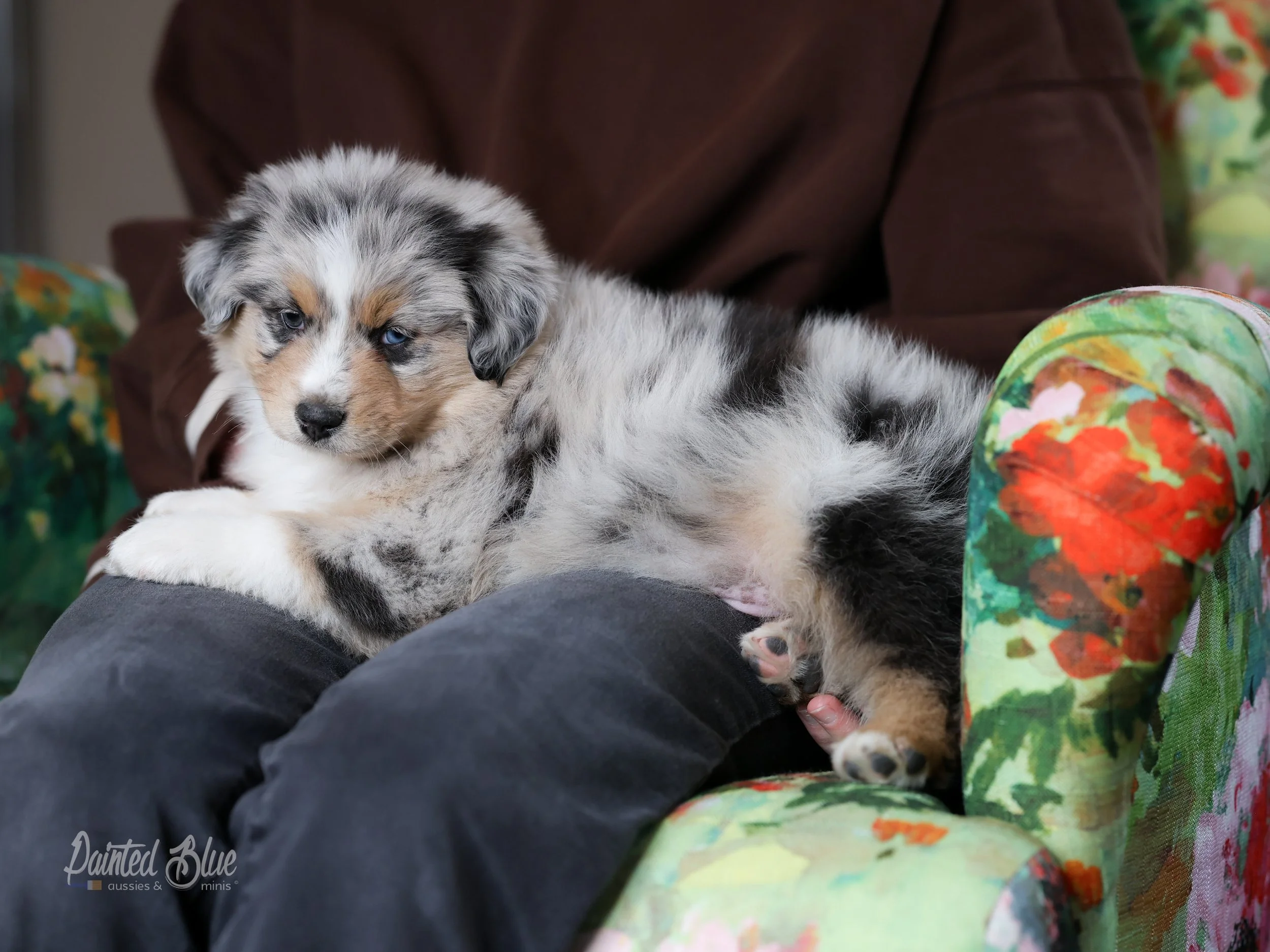Puppy Diarrhea: What You Need to Know
Diarrhea is a common issue that can affect puppies and can be a source of concern for pet owners and families. While it can be unsettling to see your puppy experiencing digestive upset, understanding the causes, symptoms, and proper management of diarrhea can be crucial to both your puppy’s health and well-being, and your peace of mind. Here, we will explore the common causes of diarrhea in puppies, practical tips and tricks that have worked for our dogs for managing it at home, and when to seek veterinary care. Hopefully by sharing our knowledge and experience, you'll be better prepared to support your puppy through an episode of diarrhea.
Common Causes of Puppy Diarrhea
Puppy diarrhea can be triggered by various factors, often linked to their instinctual emerging curiosity and still immature, developing immune systems. Like many young mammals, puppies explore the world by tasting and chewing on interesting or new objects they find in their busy explorations. This behavior can lead them to ingest non-food items like grass, sticks, or even poop of various animals including their own, which may result in upset tummies and diarrhea. Additionally, parasites such as worms or infections from bacteria or viruses can be culprits of diarrhea in puppies, or they can be the result of a system off balance. Stress, sudden or gradual dietary or water changes can also disrupt their digestive health. Growing puppies can find themselves off balance due to many varying factors, and they will be especially sensitive during and in the weeks after weaning. Many times, diarrhea can be helped by mitigating triggers, and gentle support to help their systems get back on track.
Post Weaning Diarrhea
At Painted Blue Aussies, we place a high priority on the health and well-being of our Australian Shepherd puppies and Mini American Shepherd / Mini Aussie puppies. We take proactive measures by regularly treating them for a broad spectrum of common parasites and maintaining quarantine practices for unvaccinated puppies to safeguard against viral infections. Despite our best efforts, we acknowledge that diarrhea can and does still occur. The weaning process of transitioning from milk to solid foods is an especially sensitive time for our little ones, and that transition can produce symptoms off and on in our experience, for two weeks and sometimes up to six weeks.
Through experience and research, I've come to understand that weaning diarrhea is a natural, common, and unfortunately at times an inevitable occurrence in puppy development, as well as in many other mammals and livestock. When we encounter diarrhea during or after weaning in our puppies, our priority is to provide gentle support and care to help them navigate through this digestive upset. Despite our best efforts, puppies may experience varying degrees of severity, ranging from soft stools to watery diarrhea, which can occasionally include traces of blood due to gastrointestinal irritation. This can be a normal part of the changeover of gastrointestinal flora and irritation as new bacteria settle in to aid in the digestive process of solid foods.
Managing Diarrhea In Puppies
If your puppy is vomiting, displaying signs of dehydration, or appears lethargic, it's essential to seek veterinary care immediately. These symptoms could indicate a more serious issue that could require medical attention. Your veterinarian will be able to assess your puppy's condition and provide appropriate treatment to ensure their well-being. For our puppies, if the issue is solely soft stools or diarrhea, and all other signs appear normal, we typically initiate at-home support measures to start, and assess as we go.
Although it can be frustrating when our Australian Shepherd puppies or Mini Australian Shepherd puppies / Mini American Shepherd puppies don't seem to be feeling their best, one of the most important things we've learned when dealing with transitional diarrhea in our puppies is the value of time and allowing the nature of the body to work for itself. As long as they are eating, drinking, and playing happily, they often just need time for their systems to adjust and find equilibrium.
We can recommend a few products we use to provide gentle support for their digestive systems during this process of establishing equilibrium. When used appropriately and in moderation, we have found these items may offer some relief. The products listed below are products we occasionally use for puppies who find themselves out of balance. As an Amazon Associate, I earn from qualifying purchases.
Starting Point: Soothing Upset Digestion in Puppies
If our puppies are eating, drinking, and playing normally, and we are satisfied with their current diet, we introduce a small amount of canned pumpkin twice a day. For our smaller Mini Aussie and Mini American Shepherd puppies, we typically start with a teaspoon at breakfast and another teaspoon at dinner. For our Australian Shepherd puppies, we may begin with 2-3 teaspoons twice a day.
We aim to not to exceed 1 tablespoon twice a day, as excessive fiber intake can soften stools, however it is perfectly safe and healthy in small amounts. Canned pumpkin is typically readily available at local grocery stores, is nutritious, and most of our puppies and dogs enjoy it as a treat. Check the baking isle. Libby’s is great, as well as the store brand. Just ensure there are no additional ingredients or flavors added.
What to Do If Pumpkin Doesn’t Firm Up Your Puppy's Stools
If pumpkin isn't firming up your puppy’s stools, it may be beneficial to try a different food formula. Sometimes, switching to a more gentle protein source can help soothe an upset stomach. Lamb is known to be easier on sensitive digestive systems, and we've had great success with the Purina Puppy Lamb & Rice formula in similar situations. A change in diet could provide the relief your puppy needs for better digestive health.
The Purina Puppy Lamb & Rice formula can be fed for a few weeks to a few months, giving your puppy's digestive system time to settle and recover, while still providing them with a healthy balanced diet. Once their stools are consistently firm and their tummy seems stable, you can choose to either continue feeding the lamb formula or transition back to a chicken-based formula, if preferred. keep in mind that a diet change may cause temporary digestive upset, and this is normal.
Recommended Products
-

Canine Rebound
– a lifesaving rehydration remedy that proves invaluable whenever your beloved dog or puppy faces stress or illness. With a decade of personal use for my own dogs, I wholeheartedly endorse ALWAYS keeping this formula on hand. This formula is great for helping keep puppies hydrated and energetic.
-
Firm Up! Pumpkin
— is an excellent alternative to wet canned pumpkin. While canned pumpkin is beneficial, it can often grow mold quickly when stored in the fridge. To avoid the extra hassle of freezing canned pumpkin in smaller portions, we recommend using this dried pumpkin product. Also great for travel! Please follow the instructions provided on the package for dosage.
-
Advanced
is a canine probiotic with prebiotics, formulated for dogs and puppies. It can help introduce beneficial bacteria and aid in balancing the digestive system.
-
Bernie's Perfect Poop for Dogs
is a combination of probiotics, prebiotics, and healthy fiber to help aid dogs and puppies in balancing their digestive system.
Occasionally, if a puppy's diarrhea does not improve over time, we may recommend a diet change. Sometimes, a particular food may not agree with a puppy, and switching to a different diet can help resolve the issue. Please contact us to help troubleshoot and for food recommendations for your Painted Blue puppy or dog.
While veterinary prescription formulas may show short-term improvements, we have observed that they can lead to more significant problems in the long run, such as a recurrence of diarrhea, skin issues, coat problems, and even ear infections. Instead, we advocate for selecting high-quality, balanced commercial diets that are suitable for growing puppies to promote overall health and well-being.
Please feel free to reach out with any questions or concerns you have about managing diarrhea in your Painted Blue puppy during their transition to your home. We are here to provide guidance and support to help you and your puppy navigate this period effectively. Your puppy's well-being is our priority, and we're committed to assisting you every step of the way!
Informative links: Managing Weaning Diarrhea – American Kennel Club (akc.org)







